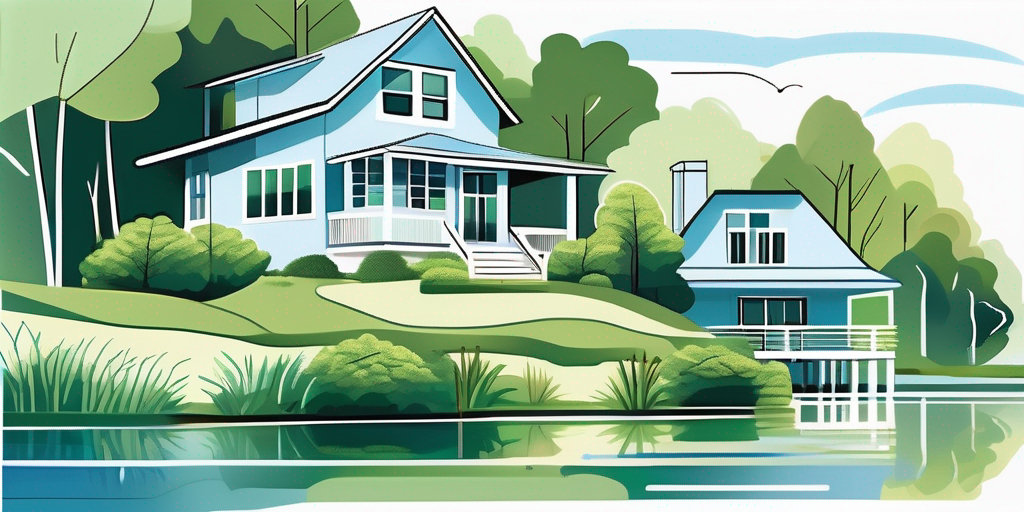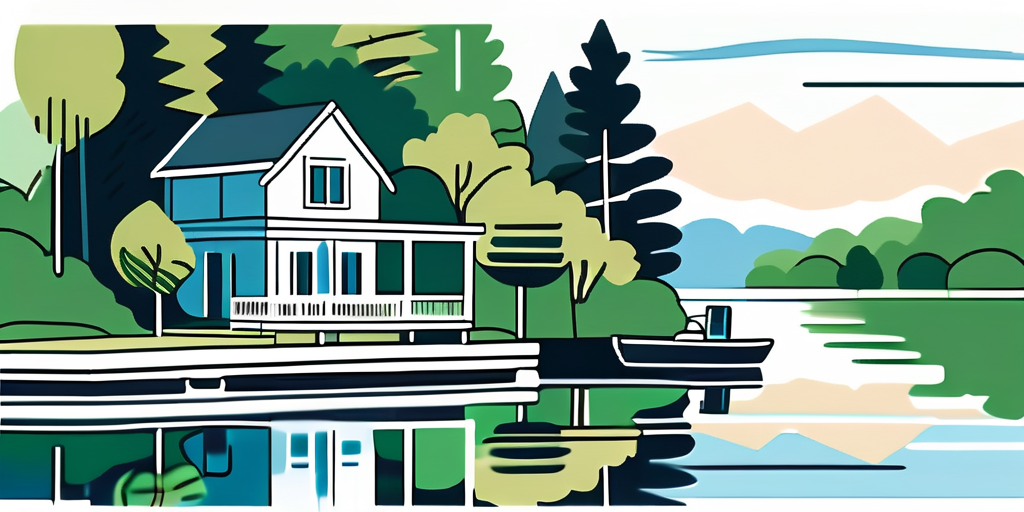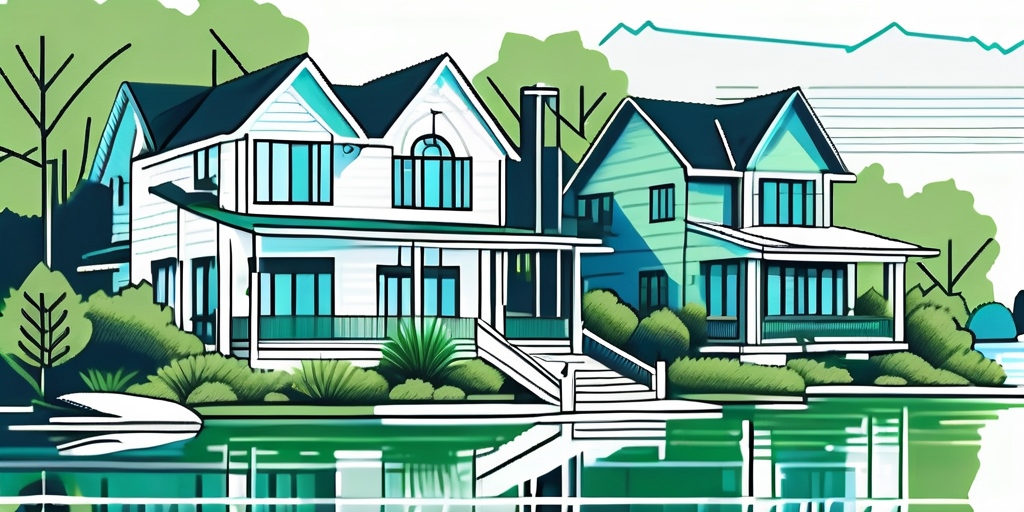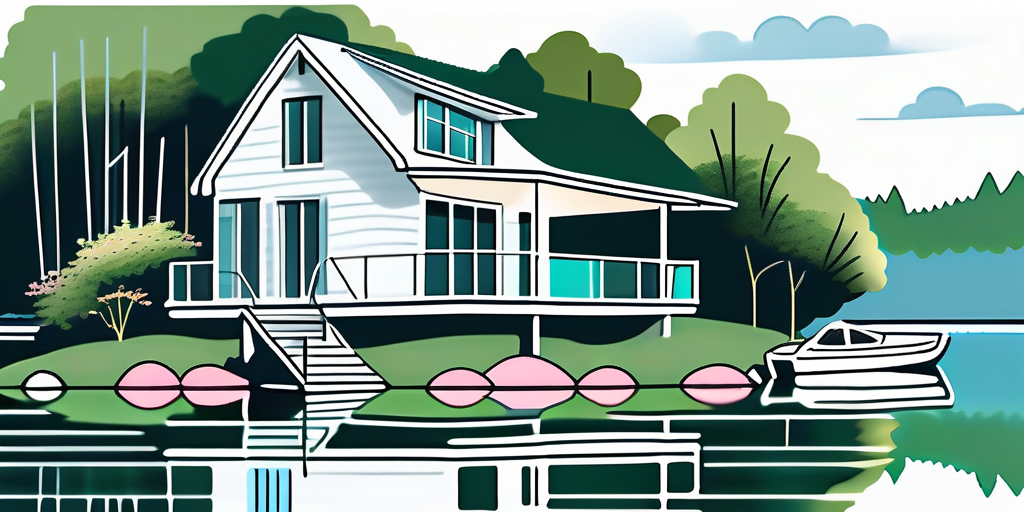
There's something undeniably enchanting about living near water. The gentle rippling of a lake, the sound of birds chirping, and the beautiful scenery create a relaxing atmosphere that can be hard to resist. If you are considering buying a lakeside home, this guide will walk you through the appeal, considerations, and responsibilities that come with owning a property in such a picturesque area.
Lakeside living offers a unique blend of nature, tranquility, and recreational activities that many find irresistible. From the picturesque sunrises to the captivating sunsets, the beauty of lakeside homes goes beyond mere aesthetics.

The serene environment of a lakeside home can serve as a refuge from the hustle and bustle of daily life. Imagine sipping your morning coffee while gazing at the shimmering water surrounded by lush greenery. The sights and sounds of nature enrich your daily life, helping to foster a sense of peace.
Moreover, lakeside properties often feature stunning architectural designs that seamlessly blend with the natural surroundings. Whether it's a cozy cabin or a modern home, the aesthetic charm of lakeside living cannot be overstated. Many homes incorporate large windows that invite natural light and offer breathtaking views of the lake, creating a harmonious connection between indoor and outdoor spaces. This thoughtful design not only enhances the beauty of the home but also allows residents to feel immersed in the tranquil landscape.
Residing by a lake introduces you to a unique lifestyle that emphasizes relaxation and recreation. Many lakeside communities prioritize outdoor activities, including fishing, kayaking, and hiking. This focus on outdoor living brings a sense of community as neighbors often gather for summer barbecues, bonfires, and water sports.
Additionally, living near a lake means indulging in seasonal activities, such as ice skating or ice fishing in winter, creating year-round enjoyment. Each season brings its own charm, making lakeside living an exciting prospect. In the spring, residents can enjoy blooming wildflowers and the return of migratory birds, while summer offers the perfect backdrop for swimming and boating. Fall transforms the landscape into a canvas of vibrant colors, inviting leisurely walks along the shore. Even winter, with its serene blanket of snow, presents opportunities for cozy gatherings and the joy of winter sports. This cyclical nature of lakeside living ensures that there is always something new to experience, making it a truly dynamic lifestyle choice.
Before plunging into lakeside living, there are several important considerations that potential buyers should take into account. These factors will influence not only your immediate experience but also your long-term satisfaction with the property.

The location of your potential lakeside home is paramount. Proximity to essential services such as shopping, healthcare, and schools can significantly impact your daily life. A beautiful home may lose its charm if it’s too far from basic amenities.
Accessibility is another vital element to consider. Some lakes are nestled in remote areas, which can pose challenges during winter months or rainy weather. Ensuring that the home is easily reachable year-round should be a priority in your decision-making process.
Additionally, consider the surrounding community and its vibe. Are you looking for a quiet retreat or a vibrant neighborhood with social activities? Investigating local events, clubs, and recreational opportunities can help you gauge whether the area aligns with your lifestyle preferences. Engaging with current residents can provide valuable insights into the community's culture and any seasonal changes that may affect your living experience.
Not all lakeside properties are created equal, especially when it comes to waterfront features. It's essential to examine the shoreline, access to water, and any unique characteristics of the property—such as docks, beaches, or boat launches.
Moreover, consider the types of recreational activities you want to pursue. If you envision fishing, boating, or swimming, ensure that the lake's conditions and the property's proximity to the water align with your lifestyle aspirations.
Furthermore, it’s wise to investigate the lake's water quality and any regulations that may be in place regarding its use. Some lakes may have restrictions on motorized boats or specific fishing seasons, which could influence your enjoyment of the property. Understanding the ecological health of the lake can also provide insights into potential issues, such as algae blooms or invasive species, which could affect your recreational plans and property value over time.
Owning a lakeside home can be a beautiful investment, but it also comes with its own set of financial considerations. Understanding these costs can help you budget accordingly and avoid surprises down the line.

The market value of lakeside properties can vary considerably based on location, size, and amenities. Researching comparable homes in the area can provide insight into fair pricing. Consider consulting with a real estate agent who specializes in waterfront properties, as their expertise can help you navigate the market effectively.
It's also prudent to evaluate market trends. Some areas might be experiencing rapid growth, while others may have stable or declining values. Understanding these patterns can aid in making an informed investment. Additionally, factors such as proximity to recreational activities, local infrastructure, and community development can significantly influence property values. For instance, a lakeside home near a popular hiking trail or a new marina may appreciate more quickly than one in a less desirable location.
Owning a lakeside home often means higher insurance rates due to flood risks or other potential natural disasters. It's crucial to factor in these insurance costs when budgeting for your new home. Be sure to shop around and compare different policies for the best rates and coverage. Furthermore, some insurance companies may offer discounts for homes equipped with certain safety features, such as elevated foundations or storm-resistant windows, which can help mitigate potential risks.
Maintenance costs can also add up. Properties near water may require special maintenance, such as dock repair or landscaping to prevent erosion. Set aside a budget for ongoing care to ensure your property remains beautiful and functional over time. Seasonal maintenance is another consideration; for example, winterizing your home can prevent damage from freezing temperatures, while summer upkeep might include managing algae growth in the lake or maintaining your boat dock. Additionally, investing in eco-friendly landscaping can not only enhance your property’s appeal but also contribute to the health of the surrounding ecosystem, which can be a valuable selling point in the future.
Living near a lake comes with the responsibility of protecting and preserving the surrounding environment. Understanding your impact on the ecosystem is crucial for maintaining the beauty and health of the area.
As a homeowner, your practices can significantly affect the lake's ecosystem. Simple practices such as managing runoff, avoiding chemicals in landscaping, and proper waste disposal can contribute to preserving water quality and wildlife habitats.
Many lakeside communities have initiatives focused on conservation. Getting involved in local efforts can deepen your connection to the area and help create a sustainable future for the ecosystem. Participating in citizen science projects, for instance, allows homeowners to contribute valuable data on local wildlife and water quality, fostering a sense of stewardship and community pride. Additionally, collaborating with local environmental organizations can provide resources and knowledge to enhance your efforts in protecting the lake.
Embracing sustainability can enhance your lakeside experience. Consider adopting eco-friendly practices such as rainwater harvesting, using energy-efficient appliances, and incorporating native plants into your landscaping. These actions not only benefit the environment but can also reduce utility costs.
Moreover, engaging in community clean-up events or educational workshops can foster a sense of camaraderie with your neighbors while promoting environmental responsibility. These gatherings often serve as a platform for sharing best practices and innovative ideas for sustainable living. By exchanging experiences and solutions, residents can collectively address challenges such as invasive species management or shoreline erosion, ensuring the lake remains a vibrant habitat for generations to come. Furthermore, establishing a community garden can provide a space for residents to grow their own food while enhancing biodiversity and promoting pollinator health in the area.
Understanding the legal framework surrounding lakeside properties is essential for any potential buyer. Laws regarding waterways and property use can differ significantly from other types of real estate.
Before purchasing a lakeside property, it is crucial to investigate water rights and restrictions. Water access, usage, and zoning laws may impact what you can do with your property. Ensure that you have clarity on any limitations that come with water usage rights.
In some cases, homeowners may not own the water directly in front of their property, which can impact boat access or other recreational activities. Reviewing local laws and consulting a legal professional can help you navigate these complexities. Additionally, it's important to be aware of any environmental regulations that may restrict certain activities, such as fishing or swimming, in designated areas of the lake. These regulations are often in place to protect local wildlife and maintain the ecological balance of the waterway, and understanding them can help you enjoy your property responsibly.
Zoning laws can significantly affect the types of modifications or constructions you can undertake on your lakeside property. Different areas may have specific guidelines concerning building heights, distances from the shoreline, and land use.
Before making any decisions regarding renovations or additions, be sure to check with local authorities and ensure that your plans comply with existing regulations. This preventive step can save you from costly fines or stressful legal issues down the road. Furthermore, it is wise to consider the implications of any future developments in the area. Changes in zoning laws or new construction projects nearby can alter the character of the neighborhood and may affect your property's value. Engaging with community planning meetings or local real estate groups can provide insight into potential changes that could impact your investment.
In conclusion, lakeside living is a captivating prospect that offers peace, beauty, and a unique lifestyle. However, being a lakeside homeowner also comes with specific considerations, responsibilities, and legalities to keep in mind. By understanding these aspects, potential buyers can make informed decisions and fully enjoy the charm of lakeside living.